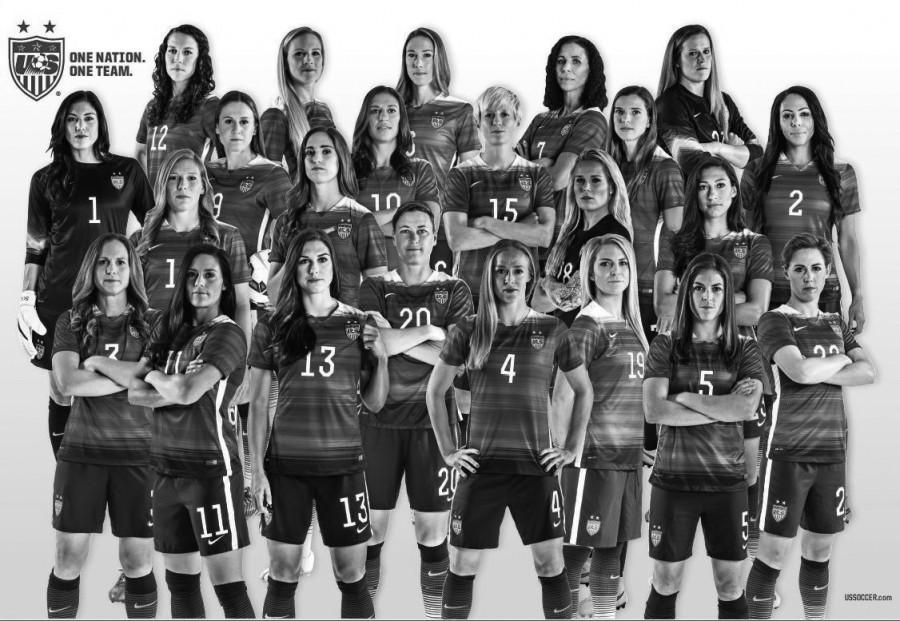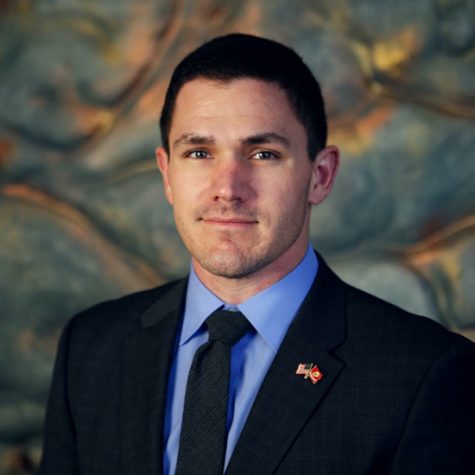Equal pay for equal work
The U.S. Women’s Soccer Team is suing the U.S. Soccer Federarion for equal payment. Photo courtesy of ussoccer.com
According to an ESPN.com article, members of the U.S. Women’s Soccer team have filed a wage discrimination action against the U.S. Soccer Federation under the grounds they are unfairly compensated in comparison to male players. Notable members of the action are goalkeeper Hope Solo and forward Alex Morgan, who were instrumental in the team’s 2015 World Cup Championship.
In a time where equality is increasingly debated and becoming more of a hot-button topic, the U.S. women’s team proposal is not only understandable, but also fair and long overdue. The team was awarded $2 million when they defeated Japan 5-2 in the World Cup Championship last year, which is dismal in comparison to the men’s team, which earned $9 million despite being eliminated in the round of 16.
Personally, I have always subscribed to the argument that women deserve equal compensation as long as standards are not lowered in order to accommodate them. To be honest, I imagine you would be hard pressed to find a woman who would actually want any standard to be lowered to suit them. If a woman can outperform a man in the same sport, there is simply no reason as to why they should not be compensated the same, if not more.
A common retort to my previous statement might suggest that although the women’s team outperformed the men’s team, they did not generate as much revenue. This is a fair argument. However, if this were your stance, you would be wrong. According to ESPN, the women’s team earned a staggering $20 million more than the men’s team last year alone, yet they were paid nearly a quarter less.
There is no just reason for not offering the U.S. women’s team fair compensation, which are not only equal to the men’s team, but arguably better considering their outstanding performance the past few years. I’m pleased to see the team taking this stance and encouraging change. The fact that such a successful organization is using their celebrity status to invoke change is inspiring. These women have proven themselves to be champions on the field and it seems only logical they be paid for their efforts.
When discussing fair compensation for the U.S. women’s soccer team, it seems almost inevitable that their personal lives will become a point of interest. According to ESPN, Hope Solo faced allegations of domestic assault last year when she was accused of attacking her nephew during a heated argument. While the charges have since been dropped, Solo’s sister-in-law still maintains a restraining order against Solo which states the athlete is not allowed to be within 1,000 feet of her or her son.
While Solo’s past allegations may be used against her in the fight for fair compensation, she is not the only U.S. women’s player to have a run-in with the authorities. According to USA Today, retired soccer star Abby Wambach was recently arrested and charged with a DUI in Portland, Oregon.
While these issues are sure to be highlighted during the team’s fight for fair compensation, I’m inclined to disregard their relevancy in the case. While these women were and should be held accountable for these allegations, the case concerning fair compensation has a much larger impact than just these two women. The decision that will eventually be passed down concerning fair compensation will ultimately become an example of women’s equality in sports that will extend beyond soccer itself, and as such, should extend beyond Solo and Wambach. These women’s past should bear no weight upon the decision at hand.
The fact the team had to file this action in the first place is appalling considering they asked for fair compensation beforehand. Like every other sports team that has succeeded in overcoming the odds and becoming the best in their respective sport, they deserve to be paid as such. I look forward to the team’s inevitable victory concerning this issue in the future, and perhaps this incident will serve as a catalyst which will propel other sports to begin paying their women athletes based on a performance evaluation, not gender.
Matt Eidson is a columnist for The Dakota Student. He can be reached at [email protected]












